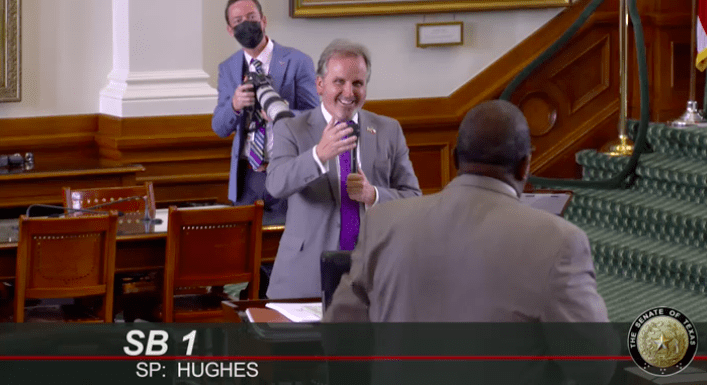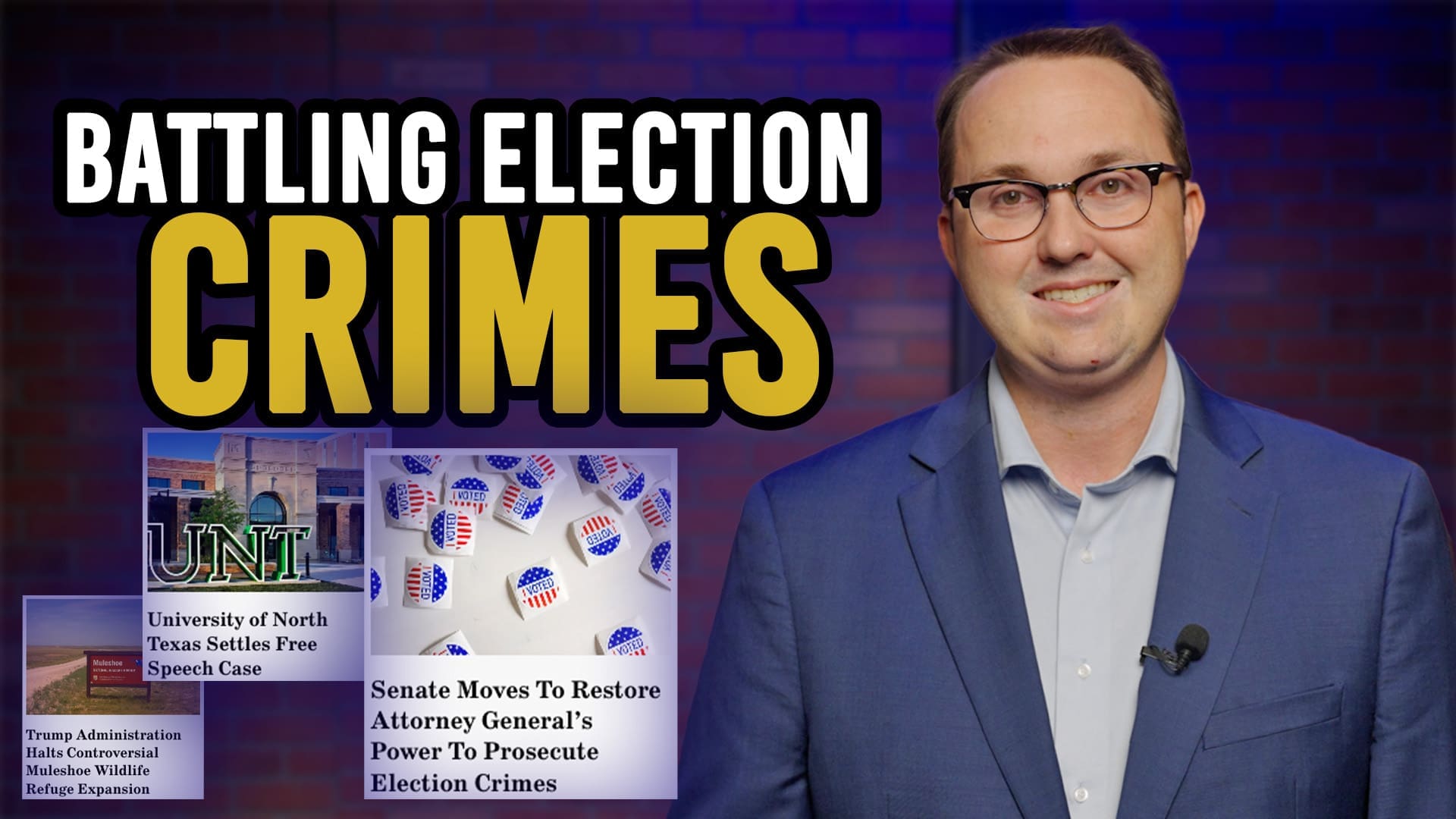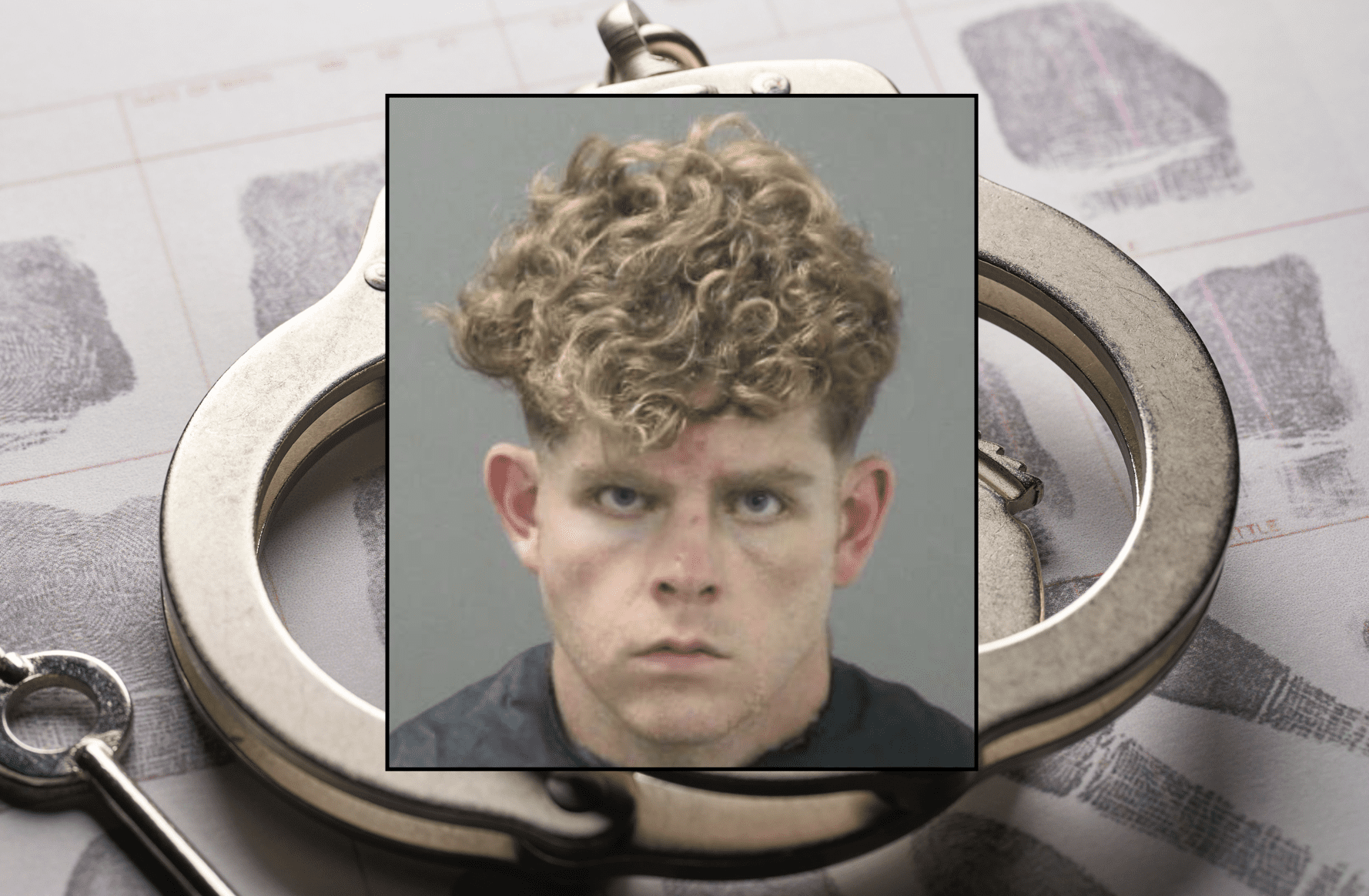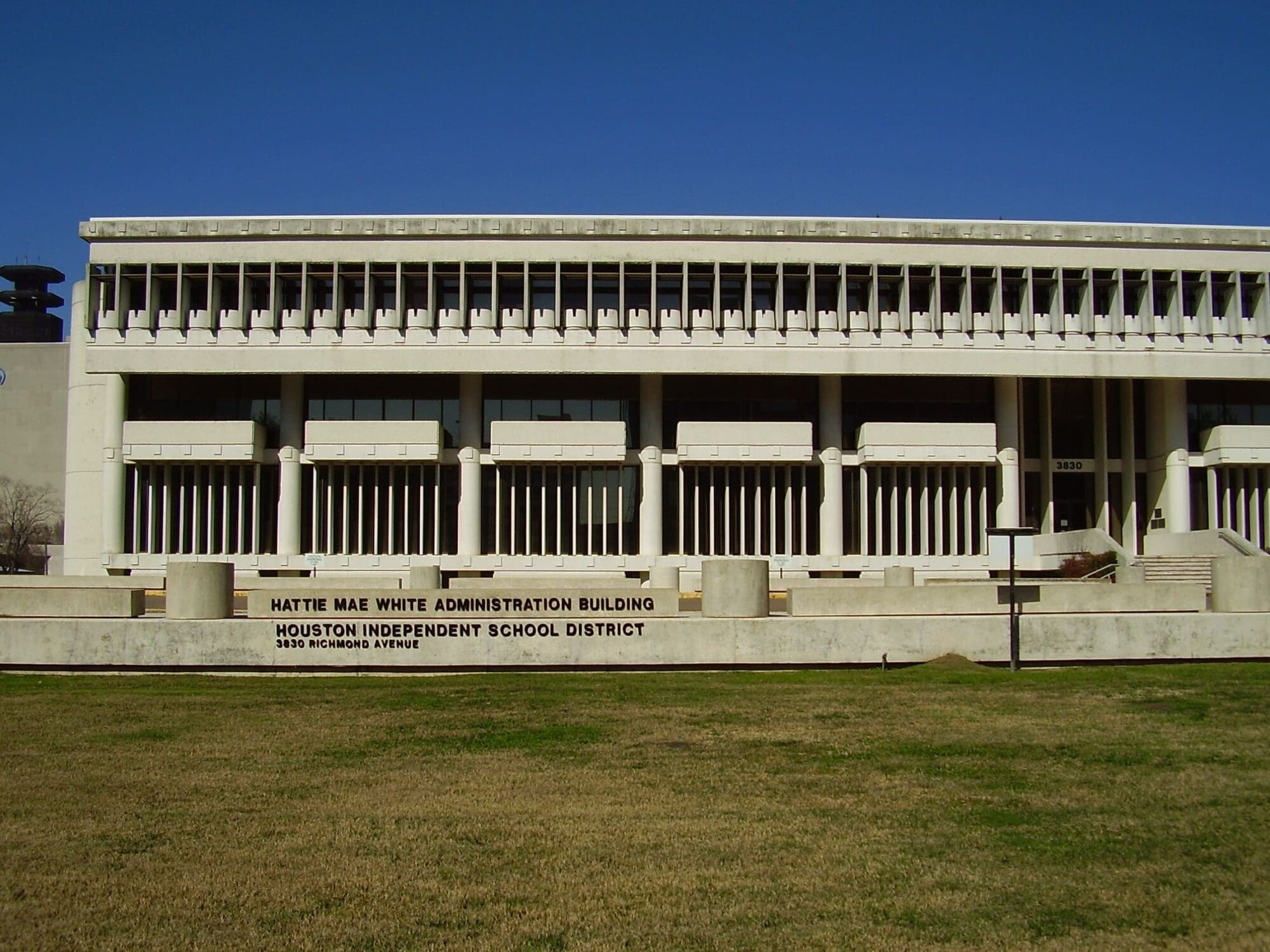In a win for election integrity advocates, the Republican-controlled Texas Legislature finally passed a major comprehensive election reform bill—a top GOP priority that Democrat lawmakers spent months trying to block.
House and Senate members gave final approval to Senate Bill 1 on Tuesday.
The bill now goes to Gov. Greg Abbott, who has said he’ll sign it into law.
The voting security measure is designed to make it “easy to vote and hard to cheat,” according to the bill’s author, State Sen. Bryan Hughes (R–Mineola).
SB 1 contains dozens of reforms sought by election integrity advocates to make voting more secure, many carried forward from past legislative sessions. As approved, the bill will:
- ban paid vote harvesting;
- require a voter ID number on mail ballots, in line with in-person voting;
- set uniform early voting hours;
- require poll watchers to complete online training developed by the secretary of state;
- protect poll watchers, including allowing observers to be “near enough to see and hear” election workers’ activities;
- penalize election officials who block poll watchers from serving;
- prohibit unsolicited distribution of mail-ballot applications by public officials;
- require voters to fill out qualifying information on voter registration applications;
- add procedures for verifying voters’ citizenship using DPS data;
- hold voter registrars accountable for performing required voter list maintenance;
- set procedures for verifying returned mail ballots;
- allow voters to correct mail ballot defects, including via a new online ballot-tracking system;
- require voter assistants to complete a form and take an oath;
- secure voted ballots via video surveillance of central processing areas;
- add security protocols for electronic devices inside central counting stations; and
- prioritize certain time-sensitive election-related court proceedings.
The bill also restricts “drive-thru” and 24-hour voting—makeshift procedures used for the first time during COVID that aren’t addressed in Texas election code. Invented by a Texas Democrat Party official serving as Harris County’s top election officer in 2020, Democrats wanted the temporary procedures to become permanent.
A Democrat amendment to SB 1 allows “qualified individuals with a disability” to request “a reasonable accommodation or modification to any election standard, practice, or procedure.” Some Republicans are concerned the provision opens the door to abuse by bad-faith actors, since the state doesn’t ask for any verification of a voter’s disability.
The final bill, called a conference committee report, represents a compromise between versions of the measure passed by the House and Senate this session.
The bills were similar but not identical, and both differed from versions considered earlier this year.
Election integrity was a top legislative priority of the Texas GOP and Abbott, yet the Republican-run Legislature failed to pass a comprehensive election reform bill during the 140-day regular session.
Throughout the session, Democrats in Texas and nationwide unleashed a continuous stream of coordinated attacks on election integrity reforms, demonizing them as “voter suppression.”
In the final hours of the regular session, as Republicans struggled to agree on a compromise measure, Democrats were allowed to leave the House, breaking the two-thirds quorum needed to vote on the priority election bill.
Days into the first special session in July, more than 50 House Democrats again broke quorum, fleeing to D.C. to block a vote on new election integrity legislation and lobby for congressional Democrats’ bills to put state election laws under federal control.
Halfway through the ongoing second special session, enough House Democrats returned to conduct business.
The Texas Senate passed SB 1 on August 12—the third time this year they’ve passed a comprehensive election reform bill.
On Friday, the Texas House passed its version of the major election integrity bill, adding more than a dozen amendments to SB 1.
Hughes requested a conference committee to reconcile differences between the two chambers’ versions, objecting to a single amendment he said could create a loophole for illegal voters.
Inspired by the case of Crystal Mason, a convicted felon who was sentenced to five years in prison for illegally voting while on parole, the amendment sought to prevent people from being prosecuted for voter fraud due to “honest mistakes” about whether they are eligible to vote.
The amendment was removed from the final bill, but the House adopted a resolution stating members believe “no Texan should be prosecuted for the offense of illegal voting if the person voted or attempted to vote based on a mistaken, honest belief that the person was in fact eligible to vote.”
In today’s final votes, the House passed SB 1 80-41 (with State Rep. Lyle Larson of San Antonio once again casting the lone Republican vote against election integrity), while the Senate approved the measure on a party-line vote of 18-13.
Once signed by the governor, the bill will take effect 90 days after the end of the second special session, which concludes on September 5.
Democrats have already said they will sue to stop Texas from implementing the new law.





